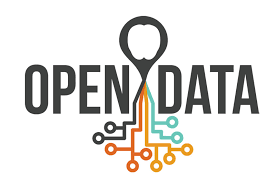- Have any questions?
- +254 718 619298
- thinking@developlocal.org

LDRI and GODAN to Collaborate on Supporting Improvements to Open Data for Agriculture and Nutrition in Africa.
20th August 2019
Perspectives on Open Data: Ethiopia
26th August 2019AODN had a chance to meet with Sulekha Adan from Kenya, an AODN Fellow – 2019 on his perspectives on Open Data in her country.
Open data is data that can be freely used, modified, and shared by anyone for any purpose. Our ability to use and re-use information from the government as freely as possible is grounded on public information laws. The Access to Information Act of 2016 (Kenya Access to Information Act, 2016) grants citizens the right to access public information or data held by a public entity. In a well-functioning, democratic society citizens need to know what their government is doing. To do that, they must be able freely to access government data. Citizens’ desire for more openness on how public funds are sourced, spent, disclosed and impacts on their livelihoods; how public services are delivered; the responsibilities and mandates of various levels and arms of government as well as the need for stronger government and citizens alliances.
Due to expected benefits such as citizen participation and innovation, the release of Public Sector Information as open data is getting increased attention on various levels of government. It is important for the citizens to engage with government data as part of good governance to reap from the values of transparency, accountability and participation. The Kenyan constitution strongly emphasizes the need for public participation in governmental decision-making processes. This demand came to prominence in 2010 when the new constitution enshrined down-up social accountability as a national priority.
Participation is mainly determined by access to information. Access to data will make the citizens feel more engaged, it will further empower them in making better decisions and help improve communication between the government and citizens and create a better society. Citizens can, therefore, hold their government accountable for not meeting up with stated goals and misconduct.
In county government in Kenya, there are two major processes that require citizen participation: integrated development planning and the budget. Process in which public participation should be considered and proposes methods for effectively engaging the citizens this could be a major leap towards open government initiatives as of now only Elgeyo Marakwet is the only local government in Kenya to participate in the open government partnership’s local program, the County Government is working with stakeholders both domestically and at the global level to promote transparency, empower citizens, fight corruption, and transform the manner in which the county government serves and engages with its citizens.
The barriers to open data in government is more cultural and administrative than technical. The belief that making data open disempowers public officials or makes them more vulnerable as they risk unveiling faults, can at times create an environment among civil servants, or even policymakers, which does not fully support the implementation of open government data initiatives.


